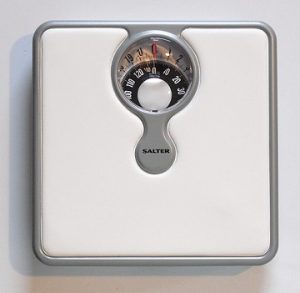
More evidence that low-calorie sweeteners are bad for your health
Studies show that artificial sweeteners can raise the risk of hypertension, metabolic syndrome, type 2 diabetes and heart disease, including stroke.

Natural Health News — More challenging research is emerging about what influences weight gain and the tendency to overeat.
Three new studies shed a fascinating light on what causes us to overeat.
In the first, published in the journal Medical Hypothesis, Norwegian researchers at the University of Stavanger suggest that diet and lack of exercise are not sufficient to explain the worldwide rise in obesity. Stress is one of many other factors which could contribute.
The scientists reviewed a number of studies, which show that levels of the stress hormone cortisol are noticeably higher in people who are overweight.
“If you have high cortisol, you seem to put on weight more easily,” says co author, biologist Brynjar Foss. He suggests that stress and obesity reinforce each other through what is known as positive feedback.
“When you go up in weight, your body also comes under stress. That probably has a self-reinforcing effect – so you get even fatter,” he explains.
But dieting can also stimulate cortisol production, which in turn may trigger the stress response and thereby counter the weight loss.
Sleep debt
In another small study, published in the Journal of Clinical Endocrinology & Metabolism, Swedish researchers at Uppsala University have demonstrated that that a specific brain region that controls our desire to eat becomes more responsive to images of food after one night of sleep loss than after one night of normal sleep. Poor sleep habits, they say, could affect people’s risk of becoming overweight in the long run.
Previous evidence, published in the Archives of Internal Medicine also suggest sleep debt is an important factor in begin overweight. An editorial accompanying that study calls lack of sleep the “unexpected ‘obesity villain'” that few in the general public or medical profession have yet to understand.
Portion distortion
Finally consider the colour of your tableware. According to a study in the Journal of Consumer Research choosing the right size and colour of your bowls and plates could help you eat less.
“The bigger your dinnerware, the bigger your portion. If you use larger plates, you could end up serving 9% to 31% more than you typically would,” according to a collaborative study by Georgia Institute of Technology and Cornell University.
The average size of dinner plates has increased by almost 23% from since 1900, the authors point out, and eating only 50 more calories a day could result in a five-pound weight gain each year.
In one lab experiment, the researchers asked 225 people to pour a specified amount of tomato soup into one of seven different sized bowls: three smaller, three larger, and one control bowl. Participants served themselves less than the target serving size of soup into the smaller bowls, but put more into the larger bowls.
Further experiments showed that the “bowl bias” is nearly impossible to eliminate even with education, awareness, or practice. During two follow up studies larger bowls led people to overserve up to 31 percent more than normal.
Change the colour of your dishes!
One of the few ways to reduce bowl bias is through colour – such as changing the colour of a tablecloth or a plate. In one field study, participants were asked to serve white-sauce or red-sauce pasta on either a large white or a large red plate. On average, changing the colour of the plate so it provided a high contrast to the food reduced how much people served by 21%, and changing the colour of the tablecloth reduced how much people served by 10%!
Hot on the heels of the documentary Programmed to be Fat? these studies suggest we must take a more holistic approach to weight management in order to truly help ourselves and others find and maintain a healthy weight.

National Sleep Foundation, Obesity and Sleep
Please subscribe me to your newsletter mailing list. I have read the
privacy statement